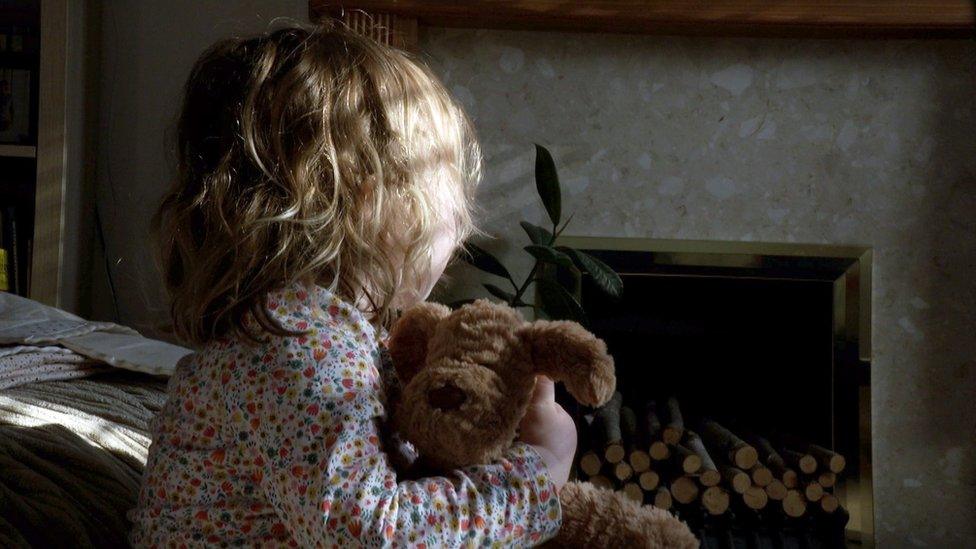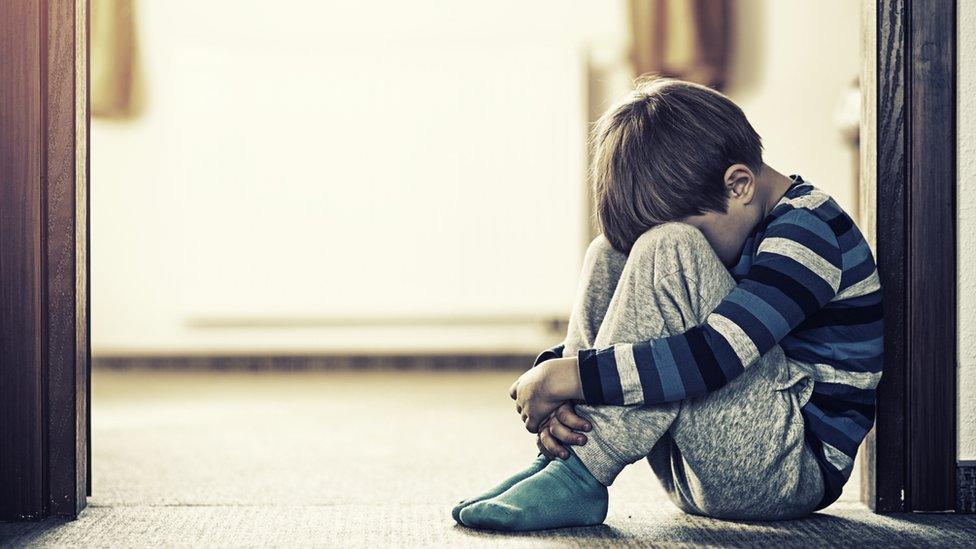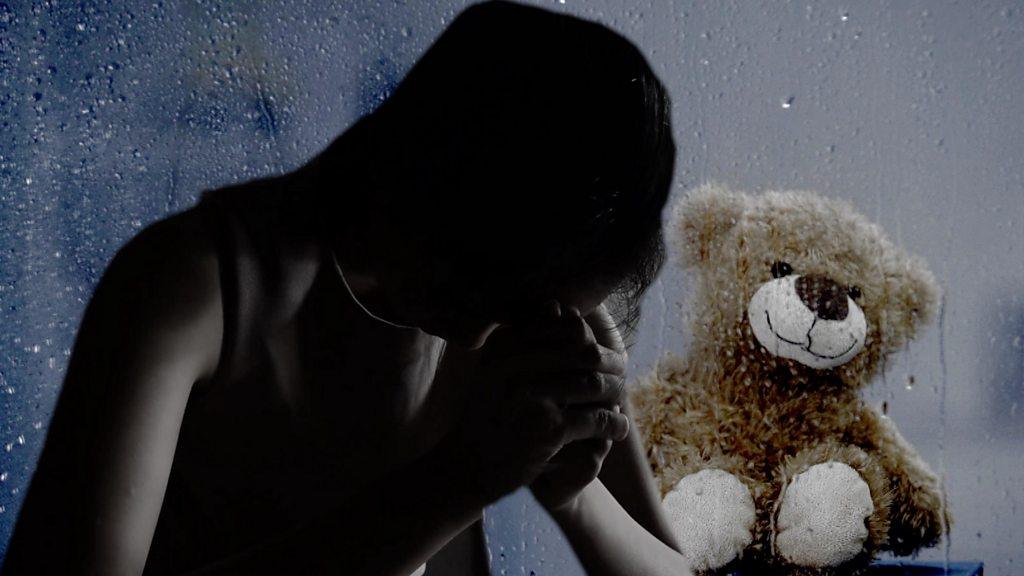Family courts: 'We're treated with contempt'
- Published

Many parents involved in family court hearings are having to participate by phone and some say they cannot follow what is happening, according to a survey. These hearings sometimes determine the future of their children, whether they are taken into care, which parent they live with. Since lockdown eased the Family Court has been holding remote or hybrid hearings, where only a handful of people are in court and the others join by phone or video link.
This summer, Elizabeth, not her real name, took part in a family court hearing by phone. For years her ex-partner had argued their two sons should live with him - but their permanent home had always been with her. This time, to her shock, the judge decided the two boys should move.
"I wasn't able to speak to my barrister during the hearing," she said. "My phone line was used up listening to the court."
She believes it would have been different if she had been able to appear in person, to stand in court before the judge.
"A million per cent. A lot of communication is more than just hearing someone over the telephone - it's visual, body language."
We can't see the evidence in family courts and no judgment has been published in Elizabeth's case - so we don't know why the judge made that decision, or whether appearing in person would have made a difference,
But her account worries Sir Andrew MacFarlane, the most senior judge in the Family Court.
"A major part of being a family judge is to empathise with the human beings at the centre of the case," he says. "And it's very difficult to do that even across a video link, very hard over a phone."
Since lockdown, the family courts have ensured social distancing by having few people in court and allowing others to join by virtual link. A survey published by the Nuffield Family Justice Observatory suggests most professionals, including lawyers and judges, believe the system is working relatively smoothly.
However, most of the parents who took part raised concerns. Most said they had had to participate via phone, like Elizabeth, and some said they couldn't follow what was going on in the hearing.
More than 1,100 professionals were contacted - 132 family members.
Lisa Harker, director of the observatory, said parents reported being unable to fully participate in hearings, sometimes the technology broke down and at other times people had no support. She was worried about those who joined from home, and were left alone to absorb the court's decision - which could be to take away their child forever.
Prof Andy Bilson, who interviewed many of the parents, said one mother had to phone in to a hearing about her child from a psychiatric hospital. "The situation of doing hearings by telephone is not just," he said.
Sir Andrew believes the situation has been improving recently, and that for the most significant hearings parents are now able to appear before a judge. However he is concerned by some of the accounts logged by the observatory report, and says he will be working with the judiciary to find solutions.
'Deprived of our rights'
Meanwhile the workload of the family courts has been growing. Cafcass, the court service, reported record numbers of child cases in England for September. In that month, there were 5,761 new cases (12.6% or 644 cases more cases than September 2019).
Most of these (4,262) were so-called private law, where parents cannot agree over their children, like Elizabeth's dispute with her ex-partner.
I asked Sir Andrew if he knew why these numbers were rising. He explained it was partly because of a backlog in the system, partly because existing child arrangements for visits and residence had broken down, but also because of a rise in the number of domestic abuse cases.
"Sadly the number of domestic abuse cases has gone up, and there will be a necessary correlation in applications to protect children in those sad cases."
Elizabeth is trying to appeal against the judge's decision, but for now has no money to pay lawyers. She believes the process has been deeply unfair. Over the summer, just before her hearing, there was a much publicised libel case, which saw actor Johnny Depp and his ex-wife Amber Heard give evidence to the High Court after Depp took legal action against the Sun newspaper.
"Johnny Depp can go to a court hearing in person, with Amber Heard, and be socially distanced, because they're celebrities and have money. In the family courts we're treated with contempt, deprived of our rights."
- Published4 June 2020

- Published13 July 2020
